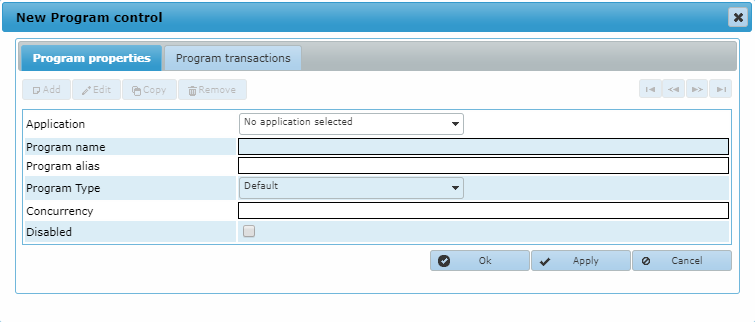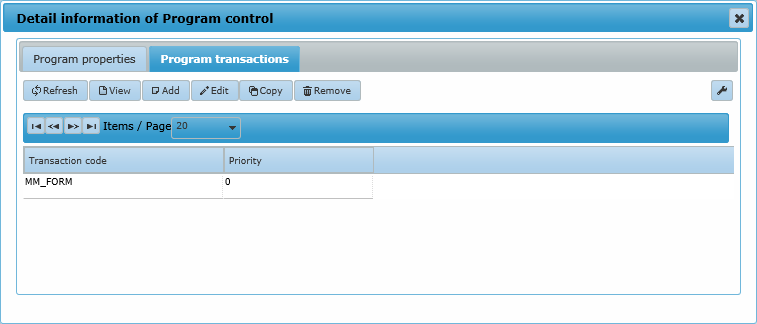Program control
This tab shows the Program Control Table of AMT-COBOL.

Click the Add or Edit button to add a new or edit an existing entry in the table. The following dialog with two tabs will show.

Program properties
- Application: The application the Program belongs to
- Program name: The Program name, this should be named exactly as shown in the 'System Configuration -> Batch & Forms -> Available jobs ' list in the Control Center. The A-Series COMS program title should be set here. This is the physical name of the program.
- Program alias: The A-Series COMS program name information for this program. This is the logical name as used in the COBOL code.
- Program Type:
- Default: This is the normal program type, the transaction server will treat these programs as is customary for the application kind to which the program belongs.
- Reentrant: Programs of the type 'Reentrant' will keep on running once started, retaining its working storage data. Making it possible to re-enter the program and continuing with the same data. Only when the transaction server is shutdown will running reentrant programs be closed. Programs set to 'Reentrant' may only have a concurrency of one (1).
- Shared: Programs of the type 'Shared' are instantiated the first time they are called and executed in a separate thread by the Transaction Agent. The same instance is then used by all transactions/programs that call this program. This option is the equivalent of the A-Series compiler sharing option 'SHAREDBYALL'. Currently only environments with a single Transaction Server and Transaction Agent support this type.
- SelfDestructive and SelfInitializing: these are types intended for future use.
- Concurrency: The number of times the Program may be executed at the same time.
- Disabled: When checked/true this program will be disabled causing it to not be accessible for users.

Program transactions
In this tab you can define transaction codes for each program.
- Transaction code: A free to choose Transaction code up to 50 characters (no spaces). These codes are to be used in the COBOL code instead of the original four character Transaction ID's.
- Priority: The priority of the program that is started through this Transaction code.
- Disabled: When checked/true this transaction will be disabled causing it to not be usable for users.
It is also possible to define Transaction codes in Transaction control.
